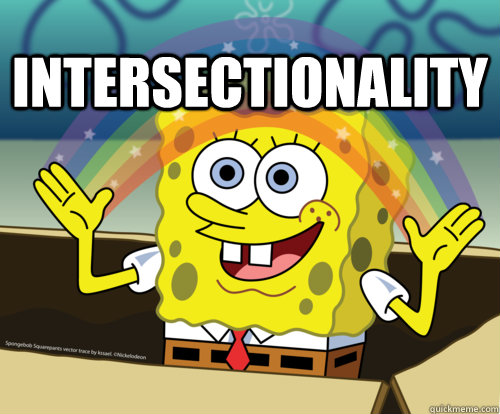Years ago, I had a career specializing in nutrition science. I was familiar all the big fancy chemical compounds in various foods, what they do, how they work, and what benefits and detriments came with overdoses and deficiencies. Gama-amino-butryic alpha-keto-gluterate may sound impressively dangerous, but it’s actually rather harmeless. It’s an amino acid commonly found in food, and is also sold as a supplement to help you sleep (often combined with a B complex and taurine – another amino acid – for added effect).
However, as I started working vitamin companies, I started noticing that there were dozens of ingredients added into the product which didn’t actually contribute towards anything the product claimed it did. I mean, ecosapentaenoic acid is just fish oil… so why not just call it that? And why is “caffeine” always listed as “trimethylaxine”? And why are there 20 dozen other ingredients added at 1/1000 their effective dosage, just to have them on the label?
The answer: it’s just to have them on the label.
Using scary complex sounding chemical names on the back of a vitamin bottle, with Ronnie Coleman or some other champion body builder on the front cover, giving you some mean glaring stare, makes it feel as though you’re taking some incredible super hardcore anabolic DRUG!… when in fact you’re what you end up paying 70 dollars for is a bottle of placebos. That’s part of the reason why I’m no longer in that industry. I had a hard time dealing with that kind of environment.
But this tactic of making something sound totally legit by giving it a huge overly complicated verbose explanation, with lots of theoretical terminology that (hopefully) goes right over your head, is actually a common tactic used in plenty of different places. That same thing holds true for social theory – especially feminism.
Case in point: https://en.wikipedia.org/wiki/Intersectionality
Today’s topic is:
 And what is intersectionality? It’s a lot like dihydrogen monoxide. It’s an overly convoluted topic often explained in such a way that it makes your need to apologize for your existence as a cis-white male sound like an established scientific fact.
And what is intersectionality? It’s a lot like dihydrogen monoxide. It’s an overly convoluted topic often explained in such a way that it makes your need to apologize for your existence as a cis-white male sound like an established scientific fact.
A better source for explaining this be found here: http://www.sfu.ca/iirp/documents/resources/101_Final.pdf
But the BEST source to learn what it means is… well, you’re reading it now.
Lets go straight ahead and make this real super simple.
“Intersectionality” basically means “everyone has a different real-life experience based on who they are and where they’re from”. That’s all it really means.
Because different people have different real-life experiences, and come from different cultures and backgrounds, it could be wrong to superimpose YOUR personal values onto someone else.
For example, the American value is to work at your own job, fight your way to the top, and one day have your own home and own car. However, the Mexican value is to work a job that’s relevant to your community, earn money to help your family, and one day take care of your parents in their old age. So the life values of one may not work for the other.
We all on the same page so far?
The train-wreck known as Third Wave Feminism has tried to take this “real life experience” and turn it into ABSOLUTE SCIENTIFIC PROOF. Suddenly, all the facts, figures, statistics, and sociological data we can gather mean nothing! You can now transform any frivolous uneducated opinion you might have had into something EVEN LEARNED SCHOLARS must now bow down to without question because your real life experience can only be understood by you.
Do you see how this is not the same as the example between the American and the Mexican? This is how it gets twisted.
Sure, I can’t know the mind of another person. That’s philosophy 101. But there are things that we CAN know. Words have meaning, and claims can be checked. Intersectionality is often used an excuse to shut down the conversation and disallow anyone to speak, except people who agree with your opinion. Because only THEY have had the “same real life experience” and therefore can speak to it.
Isn’t it strange how none of us accept that kind of bullshit from religion? Do we let Young Earth Creationists tell us all about Jesus and God because… hey, their real life experience can only be known by them?
And their experience with God Almighty can’t be questioned because you haven’t had the same experience?
For some reason, that shit never flies. But if someone disagrees with a Third Waver, “well YOU can’t talk because you’re not black / woman / trans / gay / lesbian / cat / so you can’t lecture me about what my experiences have been like!”
We can’t leave off a topic like intersectionality without also talking about Power Differentials! This is another one that’s treated like sacred knowledge, and is usually thrown in for good measure. From the above link:
—– —–
Attention to power highlights that: i) power operates at discursive and structural levels
to exclude some types of knowledge and experience (Foucault, 1977); ii) power shapes
subject positions and categories (e.g., ‘race’) (e.g. racialization and racism); and iii) these
processes operate together to shape experiences of privilege and penalty between
groups and within them (Collins, 2000). From an intersectional perspective, power is relational. A person can simultaneously experience both power and oppression in varyingcontexts, at varying times (Collins, 1990).
—– —–
Imagine for a moment you work in an office building, with 2 other employees; Jeff, who’s been with the company for several years and holds a position in management, and Sarah, a new intern working at entry-level. On her first day at work, Sarah walks by Jeff’s cubical, and sees a swimsuit calendar she doesn’t like.
In this situation, who has the power? Who has the ability to bring the entire company to a screeching halt with a number of law suits over something that wasn’t liked? Remember, this is a patriarchy. Where only men have power, and can never ever feel oppressed because intersectionality just somehow never applies to them.


Babe, are you and I even the same species of trans-woman?????
LikeLike
You mentioned something similar to this in another post I made in another forum.
While comments like this are effective at expressing your disagreement, I would be interested in hearing exactly *why* it is you disagree. What in this article did you find wrong?
LikeLike
Pingback: These 25 Examples of Female Privilege from a Trans Woman’s Perspective Really Prove the Point | 4th Wave Feminism
“Intersectionality basically means “everyone has a different real-life experience based on who they are and where they’re from”. That’s all it really means.”
This is the queer theory hijacked version of intersectionality. Intersectionality as originally conceived and experienced by black feminists was not about ‘identity politics’. Intersectionality is the study of how different power structures interact in the lives of minorities, specifically black women. Queer theory colonizes everything: intersex, intersectionality, feminism, LGB, etc.
The misogyny that I experience as a disabled black woman is deeply effected by racism and ableism.There’s no room in my head or my life to pretend otherwise.
LikeLike
Pingback: These 25 Examples of Female Privilege from a Trans Woman’s Perspective Really Prove the Point – Unfiltered Conservatism
I’m wanting to look at blogs containing music I like, but sifting through all the detached, outdated and crap blogs is a hassle. . I know there are thousands of blogs, is there a good resource to seek out the preferred ones?.
LikeLike